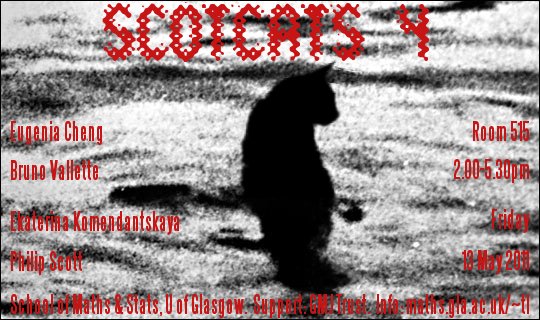The 4th Scottish Category Theory Seminar
Posted by Tom Leinster
On Friday 13 May, the Scottish Category Theory Seminar will meet for the fourth time at the University of Glasgow. We’re delighted to have as our speakers:
- Eugenia Cheng (Sheffield): Distributive laws for Lawvere theories
- Ekaterina Komendantskaya (Dundee): Coalgebraic semantics for derivations in logic programming
- Phil Scott (Ottawa): Partially traced categories
- Bruno Vallette (Max Planck Institute, Bonn): Algebra + homotopy = higher structure.
See the seminar website for further information.


Re: The 4th Scottish Category Theory Seminar
I’m ll actually be in Univ Glasgow coming from the States. Is this seminar open to non-students who want to hear the guest speakers?